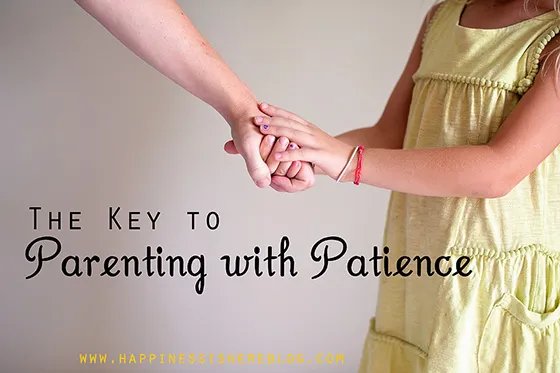Mindful Parenting: Fostering Patience, Presence, and Stronger Bonds
Parenting is one of the most rewarding yet challenging journeys anyone can embark on. From sleepless nights to hectic school schedules, from moments of laughter to days filled with worry, parenting is a full-time responsibility that demands emotional strength, patience, and unconditional love. In today’s fast-paced, distraction-filled world, many parents find themselves overwhelmed, often feeling disconnected from their children despite spending time together.
Parenting is one of the most rewarding yet challenging journeys anyone can embark on. From sleepless nights to hectic school schedules, from moments of laughter to days filled with worry, parenting is a full-time responsibility that demands emotional strength, patience, and unconditional love. In today’s fast-paced, distraction-filled world, many parents find themselves overwhelmed, often feeling disconnected from their children despite spending time together. This is where mindful parenting steps in — a powerful approach that encourages presence, compassion, and intentional connection with your child.
Mindful parenting is not about being a “perfect parent” or having all the answers. Instead, it is about slowing down, observing, listening without judgment, and responding thoughtfully rather than reacting impulsively. It is about creating a nurturing environment where both the parent and child can thrive, emotionally and mentally. By practicing mindfulness, parents cultivate patience, deepen emotional connections, and foster stronger, healthier family bonds.
In this article, we’ll explore the essence of mindful parenting, its benefits, practical techniques to apply daily, and how it helps parents foster patience, presence, and stronger bonds with their children.
What is Mindful Parenting?
Mindful parenting is an extension of mindfulness — the practice of being aware and present in the current moment without judgment. When applied to parenting, it means being fully present with your child, paying attention to their words, emotions, and actions without letting distractions, stress, or personal biases interfere.
For example, instead of scrolling on your phone while your child tells you about their day, mindful parenting encourages you to pause, make eye contact, and truly listen. It means observing your own emotional responses when your child misbehaves and responding with calmness and clarity rather than anger.
The idea is not to eliminate discipline or structure but to approach parenting moments with empathy, patience, and awareness. This fosters a safe emotional space for children, where they feel heard, valued, and respected.
The Core Principles of Mindful Parenting
Mindful parenting rests on several core principles that guide interactions between parents and children:
- Listening with Full Attention
Give your child your complete focus. Put aside distractions and listen not just to their words but to their emotions and body language. - Emotional Awareness
Be conscious of both your child’s emotions and your own. A parent who notices their rising frustration can pause and regulate themselves before reacting harshly. - Self-Regulation Instead of Reactivity
Instead of yelling or punishing out of frustration, mindful parents pause, breathe, and respond thoughtfully. - Nonjudgmental Acceptance
Accept your child for who they are, rather than constantly comparing them to others or expecting them to fit a mold. - Compassion for Both Parent and Child
Parenting is hard. Mindfulness teaches compassion for yourself when you make mistakes, and compassion for your child when they struggle.
Why Patience is the Heart of Mindful Parenting
Patience is perhaps one of the most important qualities parents need to cultivate. Children learn at their own pace, test boundaries, and often repeat mistakes — all of which can be frustrating for parents. Mindful parenting helps parents see these moments not as failures but as opportunities for growth and learning.
- When a toddler throws a tantrum, mindful parents remind themselves that this is not “bad behavior” but an expression of unmet needs or overwhelming emotions.
- When a teenager challenges authority, mindful parents see it as part of their developmental journey toward independence.
By practicing patience, parents create an environment where children feel safe to express themselves without fear of judgment or punishment. This strengthens trust and reduces conflict.
Presence: The Gift of True Connection
One of the biggest challenges modern parents face is distraction. Work emails, smartphones, and social media often steal away precious family moments. Children, however, crave undivided attention.
Presence doesn’t mean spending the entire day with your child — it means making the moments you do spend together count. A mindful parent might:
- Put away devices during family meals and engage in meaningful conversations.
- Practice bedtime rituals, such as storytelling or gratitude sharing, without rushing.
- Sit down and play with their child without multitasking.
When parents are truly present, children feel validated and valued. This not only strengthens the bond between parent and child but also boosts the child’s self-esteem and emotional security.
Stronger Bonds Through Mindful Parenting
Mindful parenting fosters deeper emotional connections. When children feel heard, understood, and respected, they naturally become more cooperative and trusting. Stronger bonds are built on small, consistent acts of mindfulness:
- Empathy: Understanding your child’s perspective even when you disagree.
- Validation: Acknowledging your child’s feelings instead of dismissing them.
- Affection: Expressing love through words, hugs, and gestures of care.
These mindful interactions communicate to children that they are safe, loved, and accepted, which lays the foundation for lifelong trust and emotional resilience.
The Benefits of Mindful Parenting
Research and real-life experiences highlight numerous benefits of practicing mindful parenting:
- Reduced Parental Stress
Parents who practice mindfulness experience less anxiety and burnout, which allows them to handle challenges with greater calmness. - Improved Parent-Child Communication
Active listening and presence make children feel understood, leading to more open conversations. - Better Emotional Regulation in Children
Children learn by example. When they see parents responding calmly instead of reacting impulsively, they adopt similar coping mechanisms. - Stronger Emotional Bonds
Mindfulness creates a nurturing environment that fosters closeness and trust between parents and children. - Positive Discipline Outcomes
Instead of fear-based discipline, mindful parenting uses empathy and understanding to guide children toward better choices. - Greater Parental Satisfaction
Parents feel more connected, fulfilled, and confident in their parenting journey.
Practical Mindful Parenting Techniques
Mindful parenting is not about perfection; it’s about consistent practice. Here are some simple yet powerful techniques parents can incorporate daily:
1. Pause and Breathe Before Reacting
When your child tests your patience, take a deep breath before responding. This simple act allows you to respond thoughtfully rather than react emotionally.
2. Mindful Listening
When your child speaks, put down your phone, make eye contact, and listen attentively. Reflect back what they say to show you truly understand.
3. Create Daily Rituals
Routines like shared meals, bedtime stories, or gratitude practices foster consistency and connection.
4. Label Emotions Together
Help your child name their emotions — “I see you’re feeling angry” or “It looks like you’re sad.” This builds emotional intelligence.
5. Model Mindfulness
Children imitate parents. Practice mindfulness yourself, whether through meditation, journaling, or simply being present in daily activities.
6. Practice Self-Compassion
Parenting comes with mistakes. Instead of guilt, treat yourself with kindness and use setbacks as learning opportunities.
Overcoming Common Challenges in Mindful Parenting
Even with the best intentions, mindful parenting can be difficult. Here are a few common obstacles and how to address them:
- Lack of Time
- Start small. Even 5 minutes of undistracted connection daily can make a difference.
- Parental Stress
- Prioritize self-care. A calm parent is better equipped to practice mindfulness.
- Children Testing Boundaries
- Remember that challenges are opportunities for teaching, not signs of failure.
- Technology Distractions
- Set boundaries around screen time for both parents and children to encourage presence.
How Mindful Parenting Shapes the Future
The impact of mindful parenting goes beyond the present moment. Children raised with mindfulness grow into emotionally resilient, compassionate, and confident adults. They develop strong coping mechanisms, healthier relationships, and a greater sense of self-worth.
Parents, too, experience long-term benefits. By fostering patience, presence, and stronger bonds, they create a harmonious family environment where love, respect, and growth flourish.
Final Thoughts
Mindful parenting is not about being flawless — it’s about being intentional. By fostering patience, practicing presence, and strengthening bonds, parents can transform their relationship with their children. The small daily acts of mindfulness — listening attentively, pausing before reacting, embracing compassion — collectively create a nurturing environment where both parent and child can thrive.
In a world full of noise and distractions, mindful parenting reminds us of the profound power of presence. It teaches us that the best gift we can give our children is not material possessions but our undivided attention, compassion, and love.
When parents embrace mindful parenting, they not only raise happier, more resilient children but also grow themselves — becoming calmer, more compassionate, and more fulfilled individuals.
Strengthen Your Parenting Journey With Presence, Patience & Connection
If this article helped you understand how mindfulness can transform your relationship with your children, here are a few more supportive reads to help you nurture emotional intelligence, deeper bonding, and calmer family dynamics:
- Modeling Emotional Intelligence: How Mindful Parenting Helps Children Manage Emotions – Learn how to guide your child through big feelings with compassion and awareness.
- Mindfulness in Education: Enhancing Focus & Reducing Stress – Explore how mindfulness empowers children in school and supports their emotional well-being.
- Awareness After Anger: How Mindfulness Helps You Recover – A gentle guide to reconnecting with yourself and reacting consciously in difficult parenting moments.
Want Daily Encouragement to Stay Patient, Present & Emotionally Grounded?
Encouraging Words — A heart-warming collection of short, uplifting reminders to help you stay calm, compassionate, and connected as a mindful parent.
The Positivity Collective
The Positivity Collective is a dedicated group of curators and seekers committed to the art of evidence-based optimism. We believe that perspective is a skill, and our mission is to filter through the noise to bring you the most empowering wisdom for a vibrant life. While we are not clinical professionals, we are lifelong students of human growth, devoted to building this sanctuary for the world.










